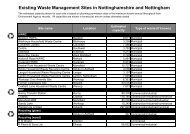Nottinghamshire Common Assessment Framework Handbook
Nottinghamshire Common Assessment Framework Handbook
Nottinghamshire Common Assessment Framework Handbook
Create successful ePaper yourself
Turn your PDF publications into a flip-book with our unique Google optimized e-Paper software.
1.8<br />
What do we mean by Early Intervention?<br />
Figure 2: the <strong>Nottinghamshire</strong> Continuum of Children and Young People’s Needs<br />
This model is used to illustrate the different levels of need of children and young<br />
people in <strong>Nottinghamshire</strong> rather than numbers of children and young people at<br />
each level. It recognises that children, young people and their families will have<br />
different levels of needs, and that a family’s needs may change over time.<br />
Early intervention means providing support to children and young people as soon as<br />
we realise they are experiencing difficulties. It means intervening early before situations<br />
reach crisis level, and making sure that we work in a coordinated way as soon as we<br />
realise that a child has additional needs. Using the Pathway to Provision indicators of<br />
need can help to identify if a child has additional needs. If a child is not making the<br />
progress we would expect for his/her age, then early intervention and targeted support<br />
services may need to provide additional services. If a child has needs that relate to<br />
several services, then those services need to work together effectively.<br />
Early intervention work can be with children of any age. Intervention in the early years<br />
of children’s lives can be very effective as we support families as soon as they encounter<br />
problems. However, children of all ages may experience difficulties and need additional<br />
support. For most early intervention work we need the consent of the young person or<br />
family. We are offering our help, but families choose if they want to accept it.<br />
For children with more complex needs, we are likely to be already providing multi-agency<br />
support. We need to continue to support these children, but early intervention means<br />
reaching more children at an earlier stage – and working together to help families resolve<br />
their problems as soon as possible.<br />
6


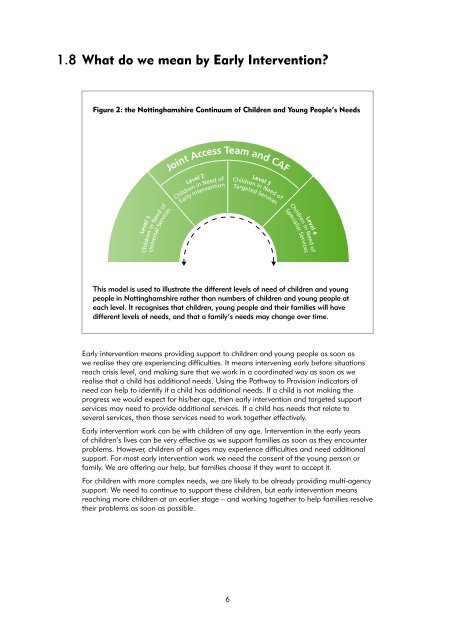
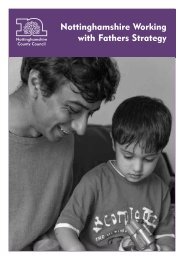
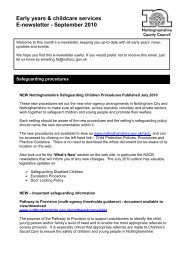
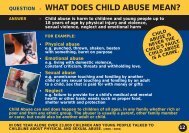

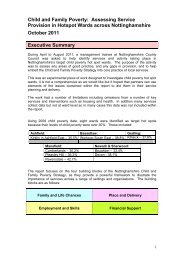

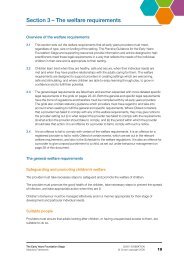
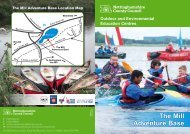
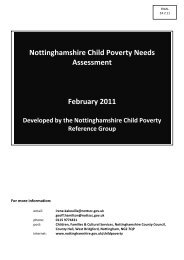
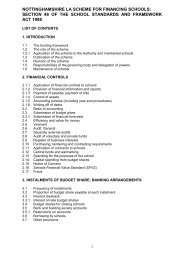
![Every Parent Matters [PDF 463KB] - Nottinghamshire County Council](https://img.yumpu.com/47250686/1/184x260/every-parent-matters-pdf-463kb-nottinghamshire-county-council.jpg?quality=85)

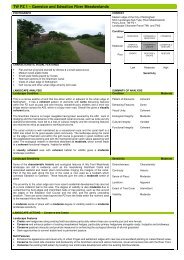
![School Employee Domestic Violence and Abuse Policy [PDF 228KB]](https://img.yumpu.com/46294446/1/184x260/school-employee-domestic-violence-and-abuse-policy-pdf-228kb.jpg?quality=85)
